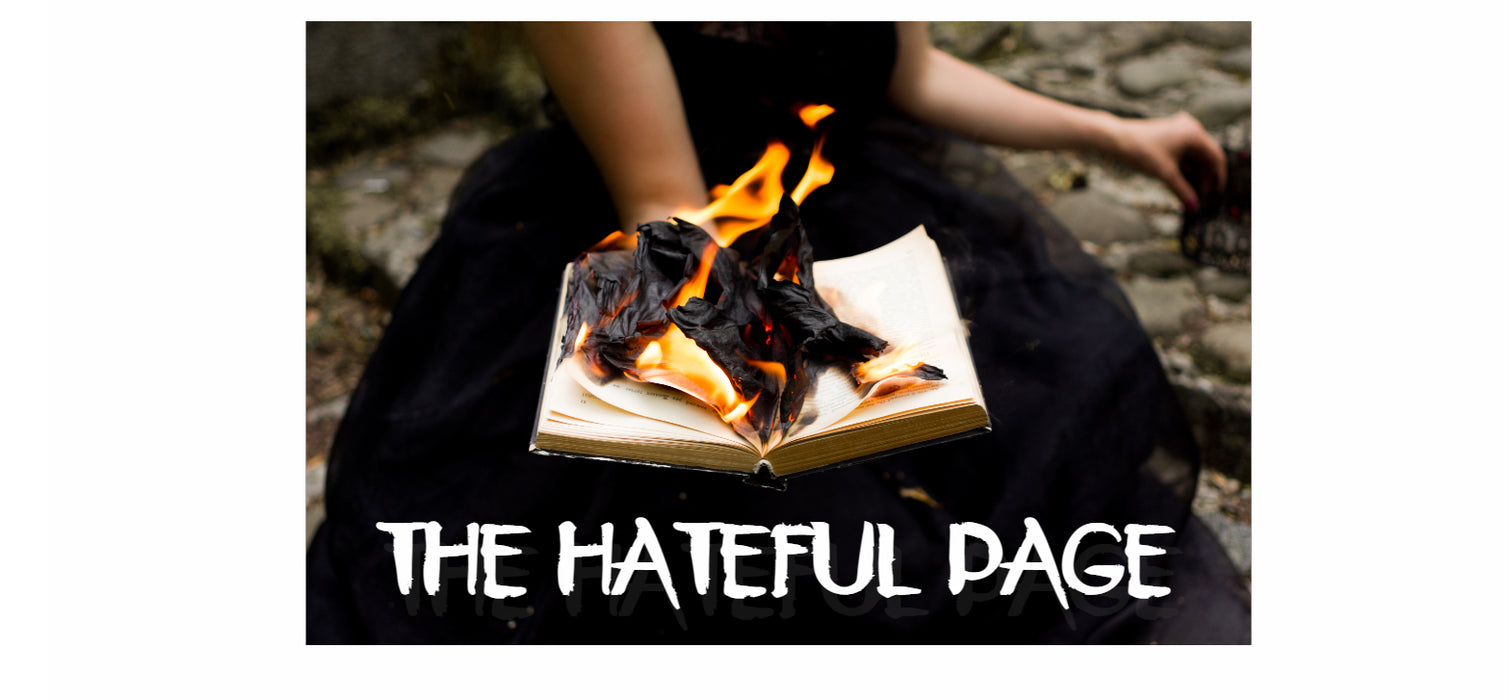
The Hateful Page - By Iain Dunford - INSTANT DOWNLOAD
Availability: Instant delivery
Some books are so bad they deserve to die, to be literally ripped apart!
A book test for the modern-day mentalist - no peeking, imps, bending, crimping, equivoque. No Canasta, Horwitz, Hoy nor Rodgers. No bodily fluids, chemicals or anything of that nature is needed. And any paperback book in the world can be used...
For anyone who feels dissatisfaction with gaffed, less-than-impromptu book tests, the Hateful Page is essential reading! What's really interesting is that not only is it a free choice of book, but the spectator brings it along with them. It's a book they hate and are prepared to destroy. This alone sets the Hateful Page apart, but there's more. Here's how it plays out:
The audience brings along books they hate, and are prepared to see ripped-up - paperbacks for convenience.
Two volunteers, Jane and John, sit about 8 feet apart Jane selects one of the books brought along for the experiment and the owner identifies herself in the audience.
The owner of the book is then to take the book and rip pages out of it, letting them fall to the ground. She's encouraged to really take out her anger by yelling at the author and saying how much she hated it until around a dozen pages lie on the ground. She's then to pick up one of the pages at random, fold it, and place it into the book, which she hands to you.
Remember John? You walk over to him and open the book to allow the folded page to fall into his hand. You dismiss John to sit in his seat.
John unfolds the selected page and chooses a side. A random audience member shouts out a random number between one and about forty (no stooges are used), and John counts down to that line on the selected side.
There's one more choice to make. Does the audience want a whole line or a single word? Someone shouts out a choice. If it's a single word, you have a random number shouted out (between one and about twenty), and have John count along that many words on the chosen line.
Either way, you now take a large pad and a marker pen and write either a word or an entire sentence on it. Lifting your pad for all to see, you ask John to read the word/sentence he came to. They match!
STRONG POINTS
Two people are invited to help, neither is nor will be stooged...any paperback is chosen from a batch bought by the audience... No limitations, no top line, no bottom line, no miscalling...No pre-show, carbon, or similar needed. The presentation is easily adaptable, with a full script included for performing. Including what to do, and when. Tried and tested, used and performed... Can also be used with diaries, bizarre presentations, and just about anything else...
Any books can be used
No stooges
-A free selection of a page
No carbons/writers
No miscalls, etc
This is deceptively simple, but very elegant stuff. - The sheer choice of book, the ripping out of pages at random, the selection, and the fact that you never handle the folded choice make this very interesting and strong effect. Any hated paperback, any page, any line, and any word.
This routine IS VERY THEATRIC and FUN! - You can't help but get involved. This is not another plain-jane word revelation. It's much more!
There is absolute performance freedom! -The method is ingenious and extremely direct (and yet subtle). When we first saw this performed we really did not see that coming (and neither would the audience). They will be too wrapped up in the presentation!
It is powerful! - Because of all the reckless freedom regarding the selection of the information that will be revealed, there is just nowhere to go. The method is simple but very effective and clever. This almost works by itself (you'll understand once you read it).
-----------------
'This is a great effect, and it really IS impromptu (well, as impromptu as doing a card trick!).
What I love here is the devious simplicity and lateral thinking which means that even though there are CHOICES here, there are no complex memory systems (yes, it's not forced-there IS free choice).
Another great thing is the explanation: it is precise, concise and to the point. No complex mass of quoting names of famous mentalists and principles, this is just straight down to business. We see too many effects these days with sprawling paragraphs of "how xxxx does it using the yyyy technique"-namesdropping ahoy-when all we really need to know is HOW DO WE DO IT!!!
But what I REALLY like most of all about this is that it is usable. It's real-world workable. And it's something which could be really quite memorable to the people involved.
The idea of destroying hated books is great. And the psychology of having the spectator actually physically destroy the book is excellent. The sheer comedy this creates both on and off the stage can be milked and milked, and provides the 'larger' action often spoken of by Vernon.' - Seige